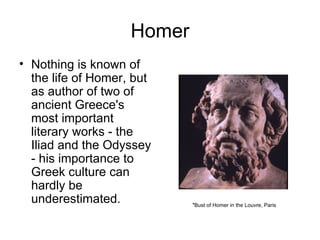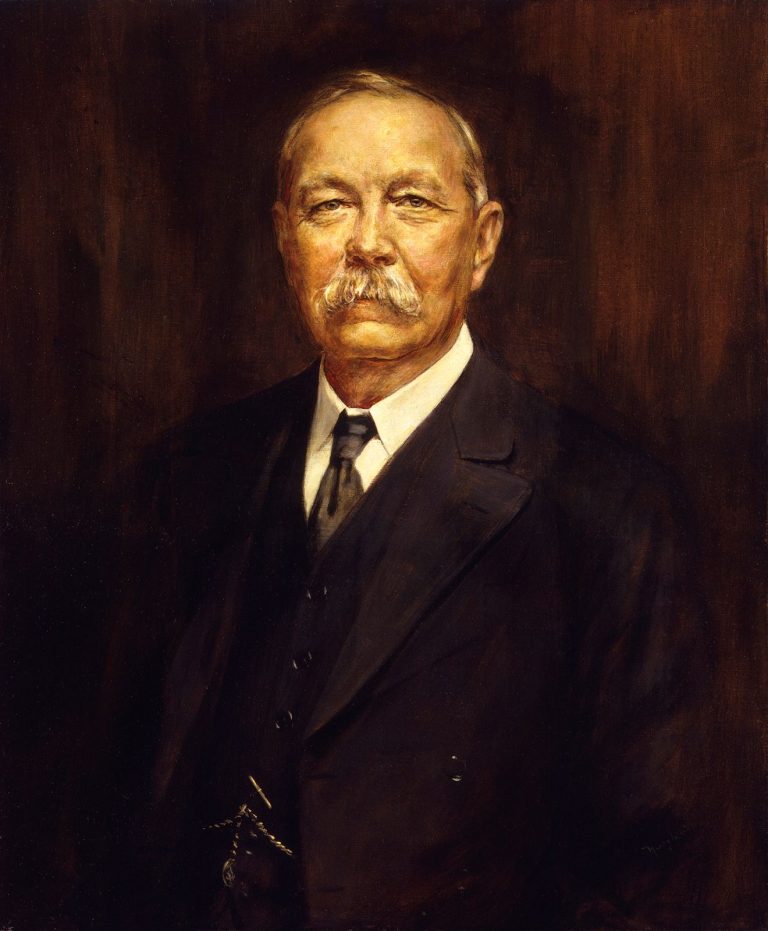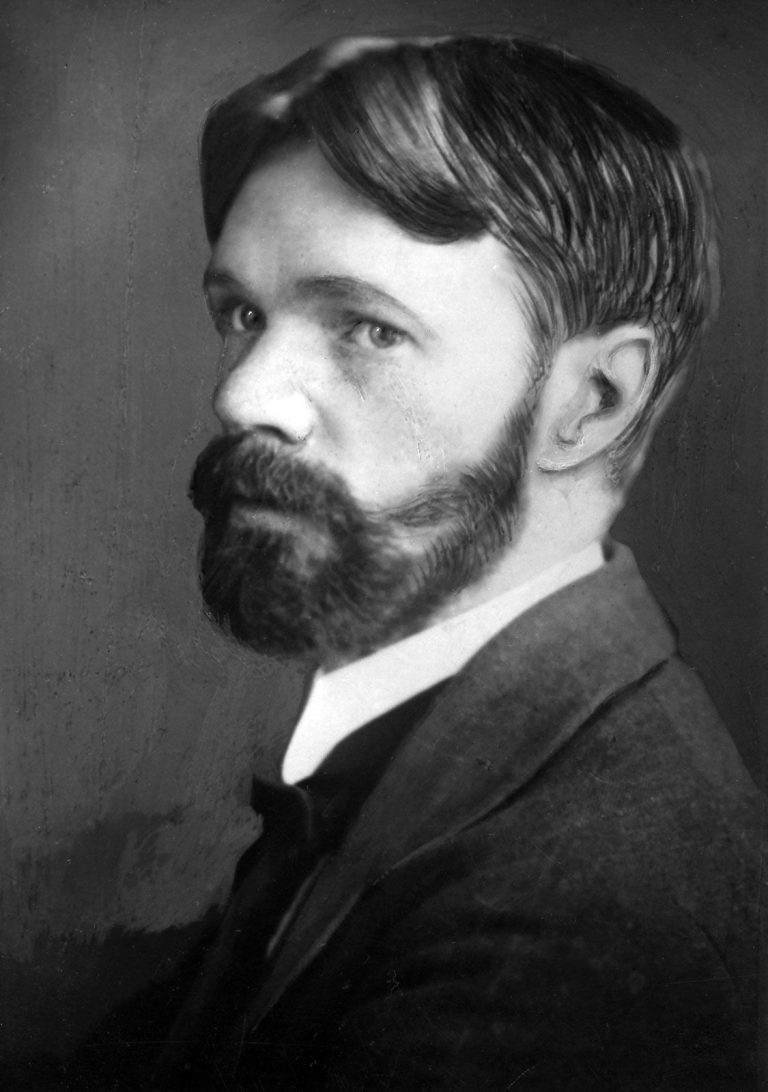Homer is an ancient Greek poet traditionally said to be the author of the epic poems the “Iliad” and the “Odyssey.” His works are foundational texts of Western literature.
Homer’s life and identity are shrouded in mystery, leading to much debate among scholars. Most believe he lived around the 8th century BCE, though the exact details of his life are largely unknown. The Iliad and the Odyssey have had a profound influence on the arts and literature of Western civilization, serving as cornerstones for the study of ancient Greek culture.
They tell gripping tales of war, heroism, and the struggle of humans against fate, all interwoven with the involvement of the gods. Despite the historical ambiguity, Homer’s epic tales continue to captivate readers with their poetic brilliance and complex characterizations.
The Mystery Of Homer’s Identity
The enigmatic figure of Homer stands as a colossus in the pantheon of Western literature, yet his true identity remains one of history’s greatest puzzles. This shadowy bard, credited with composing the epic tales of ‘The Iliad’ and ‘The Odyssey’, is a mosaic of myth and reality. Who was Homer? The lack of concrete evidence minted his life’s narrative into a montage of scholarly debates and romanticized folklore. Let’s delve into layers of time to uncover clues to this ancient mystery.
Early Records And Speculations
Sources provide fragmented details about Homer’s existence. These snippets come from works of later authors who revered Homer’s epics. Early accounts suggest Homer lived around the 8th century BCE, but specifics about his life remain elusive. The accounts of Herodotus and other historians presented various birthplaces and anecdotes, stirring more questions than answers.
Elements that have incited speculation include:
- Birthplace: Seven different cities claimed Homer as their own; none with definitive proof.
- Blindness: Many stories portray Homer as blind, a notion stemming perhaps from a character in his epics or metaphorical interpretations of a poet who “sees” through his mind’s eye.
- Historical Context: The backdrop of the Trojan War provides some historical anchorage but does not shine a light on Homer’s personal storyline.
Contemporary Perspectives On Homer
Today’s scholars approach the challenge of identifying Homer from various angles. They probe beyond dated narratives and thrive on new methodologies. The focus has shifted from piecing together a biographical sketch to understanding the influence of collective contributions on Homer’s works.
Modern analyses suggest:
- Collections of Traditions: Homer’s epics may be a compilation of oral stories from generations, fine-tuned by the poet’s genius.
- Cultural Synthesis: These works reflect a melange of cultures and practices, indicating a wider societal input.
- Textual Dissection: Linguistic forensics and stylometric studies dissect ‘The Iliad’ and ‘The Odyssey’ for authorial fingerprints, yielding insights into the epics’ construction.
Whether Homer was a real historical person or a symbolic representation of many contributors, the legacy of his work continues to captivate us. His identity, a fascinating riddle, urges us to keep questioning and exploring the depths of ancient literature.

Credit: www.britannica.com
The Epic Tradition
The realm of ancient literature echoes with the tales of heroes and gods woven into the fabric of the epic tradition. This tradition is a cornerstone of classical storytelling, often associated with the figure of Homer, the legendary Greek poet.
Oral Poetry And Its Significance
Before the existence of written text, stories danced on the tongues of bards and poets. Oral poetry was not just entertainment. It was a way to remember history, law, and culture. Aided by rhythm and rhyme, it traveled through generations, carved into the memories of listeners.
- Memory aid: Oral poetry was easy to recall because of its musical patterns.
- Cultural transmission: Epic poems were a channel to pass down important traditions.
- Community bond: Sharing these stories unified people, creating a strong community.
Homer’s Role In Shaping Greek Epic Poems
Homer is synonymous with epic poetry; his works The Iliad and The Odyssey are monumental in Greek literature.
The poet’s skill weaved characters and tales into epic narratives that became benchmarks for storytelling. Homer’s influence is immense. He crafted a heroic code that would inspire countless stories to come.
| Work | Significance |
|---|---|
| The Iliad | Defines heroism and honor in battle. |
| The Odyssey | Explores adventure and the struggles of homecoming. |
In essence, Homer’s epics shaped Greek ideals, laying the groundwork for Western literature.
Homer’s Magnum Opus: The Iliad
In the rich tapestry of ancient literature, Homer’s “The Iliad” stands as an epic masterpiece. This ancient Greek poem tells of love, war, heroes, and gods. Its influence pervades Western culture, inspiring artists and writers through the ages.
Plot Summary And Central Themes
The Iliad’s story captures the fateful days of the Trojan War. Heroes clash, destinies intertwine, and divine beings shape the outcome. A brief summary includes:
- Achilles’ wrath and withdrawal from battle.
- Hector’s bravery and tragic fate.
- The epic duel and the fall of Troy looming.
Key themes of the work include:
- Fate versus free will.
- The horror and honor of war.
- Mortality and the quest for glory.
Characteristics Of Homeric Style
The Iliad is renowned for its distinctive style. Qualities unique to Homeric compositions:
| Characteristic | Description |
|---|---|
| Hexameter | Each line has six metrical feet. |
| Epithets | Descriptive phrases for people, objects. |
| Formulas | Repeated lines ease memorization. |
| Extended Similes | Comparisons enhance visual imagery. |

Credit: www.biography.com
Journey Beyond Troy: The Odyssey
The ‘Journey Beyond Troy: The Odyssey’ offers an adventure into the ancient world that enthralls readers even today. After the fall of Troy, this epic narrative follows Odysseus on his challenging journey back to his beloved home, Ithaca. Filled with mythical creatures, vengeful gods, and enchanting sirens, The Odyssey is not just a tale of a man’s struggle to return home but is a cornerstone of literature that has shaped storytelling for centuries.
Exploration Of The Odyssey’s Narrative
‘The Odyssey’ is a story wrapped in wonder and peril. Each chapter captures a fragment of Odysseus’ treacherous trek across unknown seas. We discover:
- Mythical encounters with beings like the Cyclops and Calypso
- Tests of endurance that challenge Odysseus’ wit and willpower
- Timeless themes such as loyalty, honor, and the spirit of adventure
Odysseus’ adventures are divided into memorable episodes, each teaching a lesson on human nature and heroism. This structural choice has influenced countless narratives that came after, making The Odyssey an everlasting relic of storytelling.
Influence On Western Storytelling
The tendrils of The Odyssey‘s influence extend deeply into Western culture. Its impact is seen in:
| Area of Influence | Examples |
|---|---|
| Literary Works | James Joyce’s Ulysses, Dante’s Inferno |
| Film and Television | O Brother, Where Art Thou?, Star Trek |
| Modern Mythology | Superhero epics, fantasy sagas |
This epic not only inspired countless works but also shaped narrative structures that we see today. The hero’s journey, a common template for stories, mirrors Odysseus’ own quest, highlighting the timeless relevance of his odyssey.
Historical And Archaeological Correlations
When we dive into the life of the legendary poet Homer, we move beyond his verses into the realm of history. Scholars eagerly match his tales with real-world evidence. This connection throws light on the Bronze Age. It also confirms the settings of his epic stories.
Troy And Mycenaean Civilization
The mighty city of Troy is pivotal in Homer’s “Iliad.”
But did Troy truly exist? Archaeology says “yes.” The ruins of Troy lie in what is now Turkey. They align with Homer’s descriptions. Excavations reveal nine layers of ancient cities. One, Troy VII, seems a likely candidate for Homer’s city. This city suffered destruction around 1180 BC.
On to the Mycenaeans: They were Greece’s first advanced civilization. Homer’s kings and heroes, like Agamemnon, were possibly Mycenaean nobles. In Mycenae, archaeologists unearthed a palace. The golden treasures found match with artifacts of Homer’s tales.
- Rich royal tombs discovered in Mycenae.
- Link between Mycenaean military culture and Homeric tales.
- Linear B tablets showcase a sophisticated bureaucracy.
Real Locations Mentioned In Homer’s Epics
Homer’s “Odyssey” is a tale of adventure across the Mediterranean. It names many real places. Each name invites historians on a treasure hunt.
Ithaca, the home of Odysseus, is a real island. It was less imposing than in the epic. Yet, it fits the general description.
Other locales from the journey include:
- Sicily, where the Cyclops may have lived.
- The region of Epirus, linked to the land of the dead.
- Isles like Crete, recognized in ancient seafaring tales.
Each link we find connects us back to that distant, mythic age. They turn stories into living history.
In Search Of Homer’s World
Embarking on a literary expedition, lovers of history and mythology explore Homer’s mystic world. This legendary figure’s life story remains as enticing and elusive as his timeless tales. The search for Homer’s world is not merely a hunt through ancient texts. It’s a vivid journey across lands, seas, and centuries. Join us as we traverse through the geographical expanse, seeking connections between Homer’s epic narratives and the physical relics of Hellenic antiquity.
Geographical Descriptions In The Epics
Homer’s epics, the Iliad and the Odyssey, serve as poetic atlases. They guide us through the complex tapestry of ancient terrain. They use vivid imagery and geographic details.
| Epic | Locations Described |
|---|---|
| The Iliad | Troy, Mount Olympus, the Achaean camp |
| The Odyssey | Island of Ogygia, Ithaca, the sea voyages |
Each described location allows fans to piece together the world as Homer might have envisioned it. Every site is a breadcrumb on the trail to understanding his vision of Earth and the seas.
Hellenic Sites Linked To The Poet
Ancient sites whisper secrets of Homer’s Greece, beckoning historical enthusiasts and literary aficionados alike. The connections to Homer’s works are invaluable in piecing together his life.
- Mycenae – Home to Agamemnon, a key figure in the Iliad.
- Ithaca – Kingdom of Odysseus, central in Homer’s Odyssey.
- Troy – The fortified city at the heart of the Iliad’s grand war.
Homer’s Impact On Greek Culture
The ancient Greek poet Homer left an indelible mark on Greek culture. His epic poems, “The Iliad” and “The Odyssey,” are cornerstones of Western literature. They influenced Greek beliefs, values, and education, shaping the civilizational identity. Explore how Homer’s work embedded itself into the very fabric of Greek society.
Values And Ideals From Homer’s Narratives
Homer’s epics illustrate timeless Greek values, such as honor, hospitality, and courage. These values are woven into Greek life. See the following points about these ideals:
- Honor: Heroes in “The Iliad” strive for kleos, or glory, which reflects one’s honor and reputation.
- Hospitality: “The Odyssey” showcases xenia. This is the ancient Greek concept of hospitality and respect for guests.
- Courage: Both epics highlight the courage displayed in facing challenges, from the Trojan War to Odysseus’s journey home.
Role Of Homeric Epics In Education
Homer’s epics were not just stories. In ancient Greece, they were key educational texts. They taught life lessons and Greek history. Young Greeks would study these poems, learning to emulate the heroes within. This practice highlights the importance of Homer’s work in Greek education:
- Recitation of “The Iliad” and “The Odyssey” was a method to learn language and rhetoric skillfully.
- Studying the epics provided moral and ethical instruction and inspired philosophical thought.
- The epics served as a shared cultural heritage that unified Greek states with common ideals and knowledge.

Credit: www.slideshare.net
Homer’s Enduring Legacy
The ancient poet Homer, a towering figure in literature, has left an indelible mark on culture and storytelling. His epic tales, “The Iliad” and “The Odyssey,” have transcended time. These works continue to inspire and influence a myriad of aspects within society. Homer’s legacy breathes through countless interpretations and stands at the foundation of Western literature and art.
Translations And Interpretations
Homer’s narratives have journeyed through centuries, translated into numerous languages. Scholars and poets approach these texts with reverence. They strive to maintain the essence of the original Greek. Translations vary, each offering a unique lens through which to view Homer’s world. Here, the key themes explore heroism, fate, and the human condition. These themes resonate strongly with modern readers.
- Early translations sought to mirror Greek meter.
- Modern renditions focus on accessibility and relevance.
- Famed versions by translators like Richmond Lattimore and Robert Fagles are celebrated for their literary merit.
Homer’s Influence On Literature And Art
Homer’s epics not only stand as literary masterpieces. They also cast a wide shadow over the entire realm of art and culture. From Dante’s “Divine Comedy” to James Joyce’s “Ulysses,” echoes of Homeric themes shine through.
| Literature | Art |
|---|---|
|
|
Indeed, Homer’s epics became the blueprint for character development and narrative arcs. Artists from all mediums have drawn from his wellspring of stories. They create works that both celebrate and reinterpret ancient myths.
Controversies And Debates
The tale of Homer, the legendary Greek poet, is veiled in both admiration and mystery. The history of his life brims with as many controversies as his epic poems do with heroes and monsters. These debates revolve around his very existence and the creation of his timeless works.
The Homeric Question: Authorship And Authenticity
A millennia-old debate, known as the Homeric Question, challenges the authorship of the “Iliad” and the “Odyssey.” Scholars question whether a single person, Homer, wrote these epics or a collection of authors contributed over time. This argument stems from stylistic variances and perceived anachronisms within the texts.
- Discrepancies in writing style suggest multiple authors.
- Evidence of evolving language implies a long creation span.
- Varying mythological details indicate different cultural influences.
Modern Critiques Of Homer’s Works
Today’s scholars not only dissect the creation of Homer’s epics but also critique their content. Analysis often centers around the portrayal of characters and themes.
| Area of Critique | Details |
|---|---|
| Character Representation | Some suggest gender bias and lack of depth in female characters. |
| Violence and Heroism | Debates arise over the glorification of warfare and heroics. |
| Moral Lessons | Analysts question the ethical implications taught through the epics. |
Such modern perspectives offer a multi-dimensional view, fueling ongoing discussions around Homer’s literary influence.
Conclusion
Exploring Homer’s life reveals more than just an ancient poet’s journey. His works remain pivotal to understanding classical literature. They continue to inspire and intrigue scholars and readers alike. As we close this chapter on Homer, we embrace the enduring legacy of his epic narratives.
Let the Odyssey and the Iliad live on, narrating tales of heroism through time.






